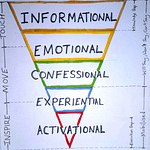This is a keynote address given by Daryl Chow, Ph.D. for a virtual conference hosted by the University of New South Wales (UNSW). Cumulative evidence in psychotherapy suggests that we not only do not improve with experience, our typical professional development efforts by attending workshops, and engaging in clinical supervision do not lead to better performance. The aim of this keynote is to address the current cutting edge development of deliberate practice in psychotherapy, and its implications on how we can leverage to improve our outcomes.
Timestamps:
Introduction (0:00)
Why the Distinction Between Performing and Learning is Critical (06:03)
Pop Quiz (07:33)
Effectiveness of Psychotherapy (09:35)
Definition of Deliberate Practice (16:11)
4 Levels to Deliberate Practice (20:05)
Clinical Supervision (22:06)
I. The Edges (24:28)
1. Super-Vision (24:55)
2. Measure Growth, Not Competence (26:34)
3. Reduce Negative Variance and Increase Positive Variance (28:23)
II. The Leverages (30:03)
1. The 80/20 Rule (30:34)
2. Three Types of Knowledge (31:54)
3. Develop a Centralised Personal Learning System (PLS) (32:42)
Closing: 4 Types of Learners.
The Dabbler,
The Hacker,
The Obsessive, and
Mastery Learning/The Late Bloomer: (36:20)
---
For the Gift Pack cited in this keynote, go to darylchow.com/traininggifts
For more about the Frontiers of Psychotherapist Development, go to darylchow.com/frontiers
Big thanks to UNSW Masters of Forensic Psychology and Master of Clinical Psychology Programs for making this publicly available.











